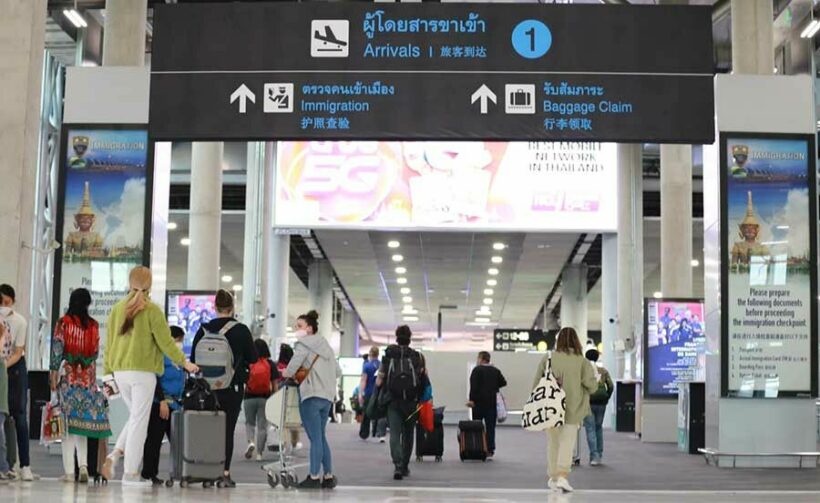
With more cases of monkeypox being reported in the UK and elsewhere, officials in Thailand are ramping up health screening for overseas arrivals. Just as Covid-19 entry restrictions are being eased, international travellers will need to complete a health declaration card on arrival in the kingdom.
According to a Bangkok Post report, the card will have a QR code, which will contain information on symptoms and how to report them while in Thailand. Anyone thought to be carrying the virus will be given advice on where to seek treatment.
The health screening follows the creation of an emergency centre to monitor the spread of monkeypox overseas, with health officials particularly concerned about arrivals from Central and West Africa, the UK, Spain, and Portugal. The Department of Disease Control says overseas visitors who arrive with possible monkeypox symptoms will be taken to hospital for tests.
According to Dr Chakkarat Pitayowonganon from the DDC, human-to-human transmission can occur through close contact with lesions, bodily fluids, respiratory droplets, or contaminated materials. He explains that visible signs of infection, such as rashes and spots that become blisters, then scabs, may not show up during the incubation period, meaning infected people could still pass airport health checks and enter Thailand.
Chakkarat says airport officials will be conducting close checks on people arriving from countries with monkeypox outbreaks and that all travellers will be required to complete the health declaration cards. Early monkeypox symptoms include fever, headache, body aches, swollen glands, chills, and exhaustion.
SOURCE: Bangkok Post